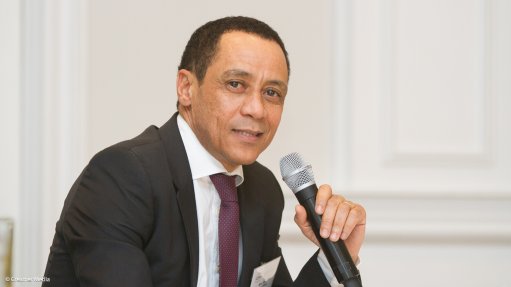
Mike Teke
Photo by: Duane Daws
JOHANNESBURG – Masimong Minerals has emerged as the favourite to win an auction for some of Anglo American’s South African coal mines, according to two people familiar with the matter.
Led by South African Chamber of Mines President Mike Teke, Masimong has edged ahead of Phembani Group, the other shortlisted bidder, in the process to buy the mines that mainly supply coal to State-owned power utility Eskom Holdings, said the people, who asked not to be identified because the information hasn’t been made public. Their offers ranged from R2-billion to R3-billion, two other people with knowledge of the matter said earlier this month.
“Anglo American is in discussions with a number of shortlisted bidders and continues to engage key stakeholders in relation to the Eskom-tied domestic thermal-coal operations,” spokesperson Pranill Ramchander said in emailed comments. “We will make further announcements as appropriate.”
Teke declined to comment. The chamber represents mining companies operating in South Africa including Anglo and Glencore.
Anglo opted to sell the New Vaal, Kriel and New Denmark mines following a decision just over a year ago to dispose of assets in response to plunging commodity prices and a desire to pay off debt. It’s since scaled back those plans as prices rebounded. The mines together account for about half of Anglo’s South African coal production.
Anglo rose 1.3% to 1 234.5 pence by the close in London Wednesday.
Both Masimong and Phembani, founded by MTN Group chairperson Phuthuma Nhleko, plan to list their companies if they succeed in buying the mines, three people familiar with the matter said earlier this month.
The two companies are black-owned, and Eskom, the country’s largest buyer of coal, says it wants suppliers to be black-controlled. South Africa is pushing companies to boost black involvement in the economy to make up for discrimination during apartheid.